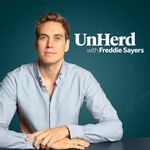'Nudge' author: is the Government manipulating us?
Despite its humble-sounding name, ‘Nudge’ may well be the most significant economic book of the the past thirty years. It has informed the thinking and policymaking of governments around the world, from David Cameron’s special ‘nudge unit’ in No. 10 to the WHO’s recently formed behavioural insight team, focusing on vaccines and masks.
Devised by Nobel Prize winner Richard H Thaler along with Cass Sunstein in their 2009 book ‘Nudge: Improving Decisions about Health, Wealth, and Happiness’, the theory aims to influence the behaviour and decision-making of groups or individuals in subtle or discreet ways that do not involve outright coercion or legislation. Through “choice architecture” governments and businesses can achieve outcomes without overtly mandating them. The pair have now published an updated version of the book, replete with their own experiences in government as well as new research.
To its critics, nudge has become a byword for manipulation — a form of soft coercion that pushes people into making decisions they’d prefer to make for themselves.
For more read The Post from UnHerd
Hosted on Acast. See acast.com/privacy for more information.
